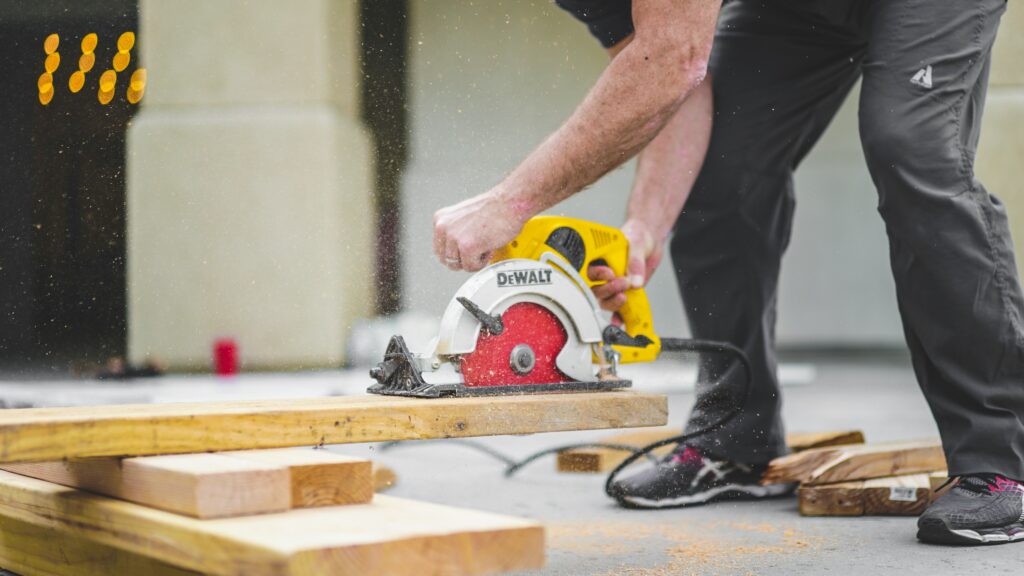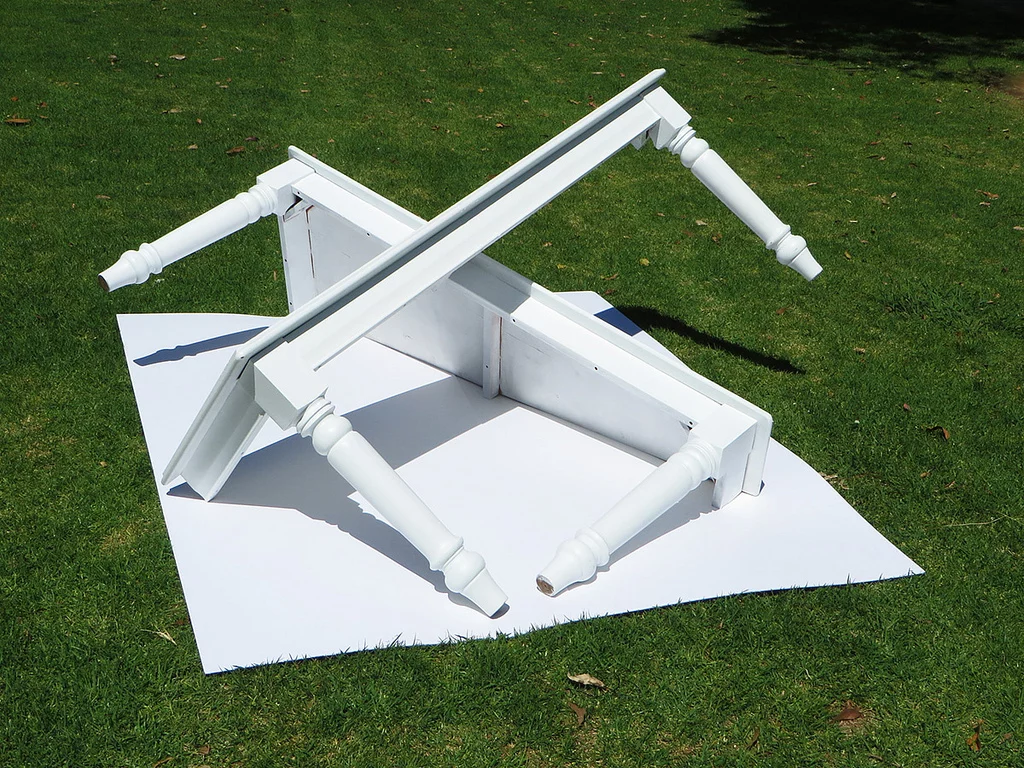An Out-Of-Balance Business is Like a Short-Legged Table
Have you ever felt like your business and/or your life were out-of-balance? This is a common situation with self-employed companies. It’s like a three-legged table with one short leg…kind of wobbly.
I know I’ve felt this way and sometimes still do. You’ve probably heard the saying feast or famine. This saying is used quite often in the building industry.

It refers to the common problem of having too much to do. Or worrying about how you are going to pay the bills if you don’t get some work soon.
Sometimes this is caused by situations beyond our control. The economy, the weather, or some other external force. More often than not it is an out-of-balance business. It’s wobbly like a table with one short leg.
Most of us that are self-employed started out by learning our trade as an apprentice, working for someone else. I know this is how I got started.
The problem with this is that while I learned how to build a building, I wasn’t taught how to build a company.

After years of struggling and learning things the hard way—paying the expensive tuition to the school of hard knocks—I’m still not close to graduating yet.
This became apparent this past week. I realized that I was not maintaining balance in the business. I was letting things distract me and not being intentional about what I was doing.
One of the things that I implemented years ago was having a different focus for each day of the week. I had been neglecting this. So, I was intentional this week to focus on the specific focus for that day. It was a productive week.
Keeping the business balanced and supported is an ongoing process.
I was reminded that my business is like a three-legged table. When all the legs are the same length, it helps provide a level, sturdy platform for my company to sit on.
When any one or two of them are short, the table starts leaning. If it leans too far the company will slide off.

It’s never good when a company crashes to the floor.
The three legs of the table are:
1 – Sales/Marketing – Searching for and finding customers that you can help. Sharing about your service and/or product through word-of-mouth, advertising and awareness. Meeting with potential customers, determining what they want/need and preparation of estimates, proposals, and contracts.
2 – Production – Organizing, scheduling and maintaining projects or products. Determining who the right people are to perform specific tasks. Knowing the parts that are needed and making sure they fit. Maintaining communication between all parties involved.
3 – Administration/finance – The preparation of documents needed to communicate, track, and record all aspects of the business. The filling out and filing of income, expense, banking, and tax papers. This leg is one of the easiest for ‘tradespeople’ to neglect.
When any one of these legs get short, it can really cause the whole table to lean.
The tabletop is the big picture: planning and organizing. It’s what connects the three separate legs. It’s easy to give too much attention to one or two legs and forget the other.
Getting so focused on the production of a project that we forget to follow-up with a new customer. Or working so hard on preparing proposals that we forget to invoice. Or even working so diligently on tracking expenses that we don’t leave enough time to work on the construction project.

There is no perfect answer to keep the table from ever leaning.
The most important thing is to realize that it can happen and to continually work to keep the table balanced.
Updated from a previous post 4/30/16







































